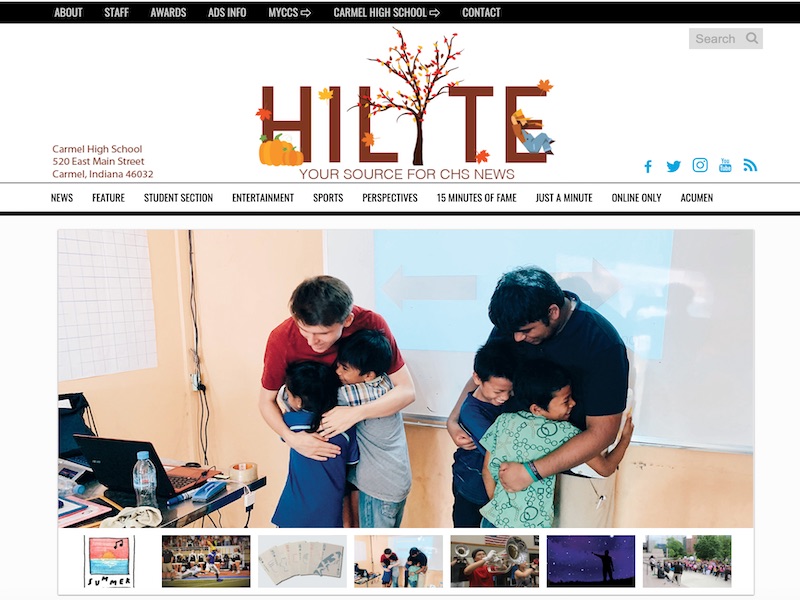Some Known Facts About News Websites.
Some Known Facts About News Websites.
Blog Article
Excitement About News Websites
Table of ContentsThe Ultimate Guide To News WebsitesAll About News WebsitesThe 8-Second Trick For News WebsitesFacts About News Websites UncoveredSome Ideas on News Websites You Should Know
It was down in the UK and Brazil but up a few other countries, such as Greece, Bulgaria, and Poland (News Websites). This year, for the very first time, we asked regarding the various means that people stay clear of the information and discovered that around half of avoiders (53%) were attempting to do so in a broad-brush or periodic method as an example, by shutting off the radio when the information began, or by scrolling past the information in social mediae.g. scrolling past news, transforming networks when information comes on. of avoiders check resources less usually. e.g. restriction to specific times of day, transforming off notifications, etc. of avoiders avoid some topics. e.g. topics that reduce state of mind or increase stress and anxiety. You said that you try to proactively avoid news.

I'm most likely selecting to find out more light-hearted stories than I made use of to presently. M, 51, UK Turning my back on information is the only method I feel I can deal often. I need to consciously make the effort to transform away for my own psychological health and wellness.
The Definitive Guide to News Websites
Selective avoidance of Ukraine news was highest possible in most of the countries closest to the dispute, strengthening searchings for from our extra survey last year, not long after the war had actually started. Our data may not suggest an absence of rate of interest in Ukraine from close-by countries however instead a wish to take care of time or safeguard psychological health and wellness from the very real scaries of battle.
Comparing Finland with a politically polarised nation such as the USA (see next graph) that is less influenced by the battle, we locate a really different pattern of subject evasion. In the USA, we find that customers are a lot more most likely to prevent topics such as nationwide politics and social justice, where disputes over issues such as gender, sexuality, and race have actually ended up being very politicised.
American national politics are rather harmful nowadays. I discover sometimes that I have to separate from tales that simply make me mad. F, 61, USA For some individuals, bitter and disruptive political debates are a factor to switch off information altogether, however, for some political upholders, evasion is typically about shutting out perspectives you do not intend to hear.

Our News Websites Statements
Some are aiming to make information a lot more available for hard-to-reach teams, broadening the information schedule, commissioning more motivating or positive information, or accepting constructive or remedies journalism that offer individuals a feeling of hope or individual firm. In our study this year, we asked respondents regarding their rate of interest in these different strategies.
This describes why tales like Ukraine or nationwide politics execute well with information regulars yet can at the same time turn much less interested customers away (News Websites). Discerning avoiders are much less interested in all sorts of information than non-avoiders yet in relative terms they do seem to be much more thinking about positive or solutions-based news

3 Easy Facts About News Websites Explained
2023). This may be real in the minute, yet gradually it appears to be leaving many people vacant and much less pleased, which might be threatening our link with and rely on the information. Throughout markets, total rely on news (40%) and rely on the sources people utilize themselves (46%) are down by an even more 2 percentage points this year.
Via the rear-view mirror, the COVID-19 trust bump is plainly visible in the following graph, though the instructions of travel later on has been blended. In some situations (e.g. Finland), the trust fund boost has been preserved, while in others the upturn looks even more like a spot in a story of continued long-lasting decrease.
Some of the highest possible reported levels of media objection are discovered in countries with highest degree of question, such as Greece, the Philippines, the United States, France, and the UK. The most affordable degrees of media criticism are commonly in those with higher levels of depend on, such as Finland, Norway, Denmark, and Japan.
Everything about News Websites
This year we asked participants regarding their preferences for text, sound and video clip when consuming information online. On standard, we discover that the majority still like to read the information (57%), instead than watch (30%) or pay attention to it (13%), but more youthful description individuals (under-35s) are most likely to pay attention (17%) than older teams.
Behind the standards we locate significant and shocking nation distinctions. In markets with a strong analysis tradition, such as Finland and the United Kingdom, around eight in ten still favor to review online news, but in India and Thailand, around 4 in ten (40%) say they favor to watch information online, and in the Philippines that proportion is over half (52%).
Report this page